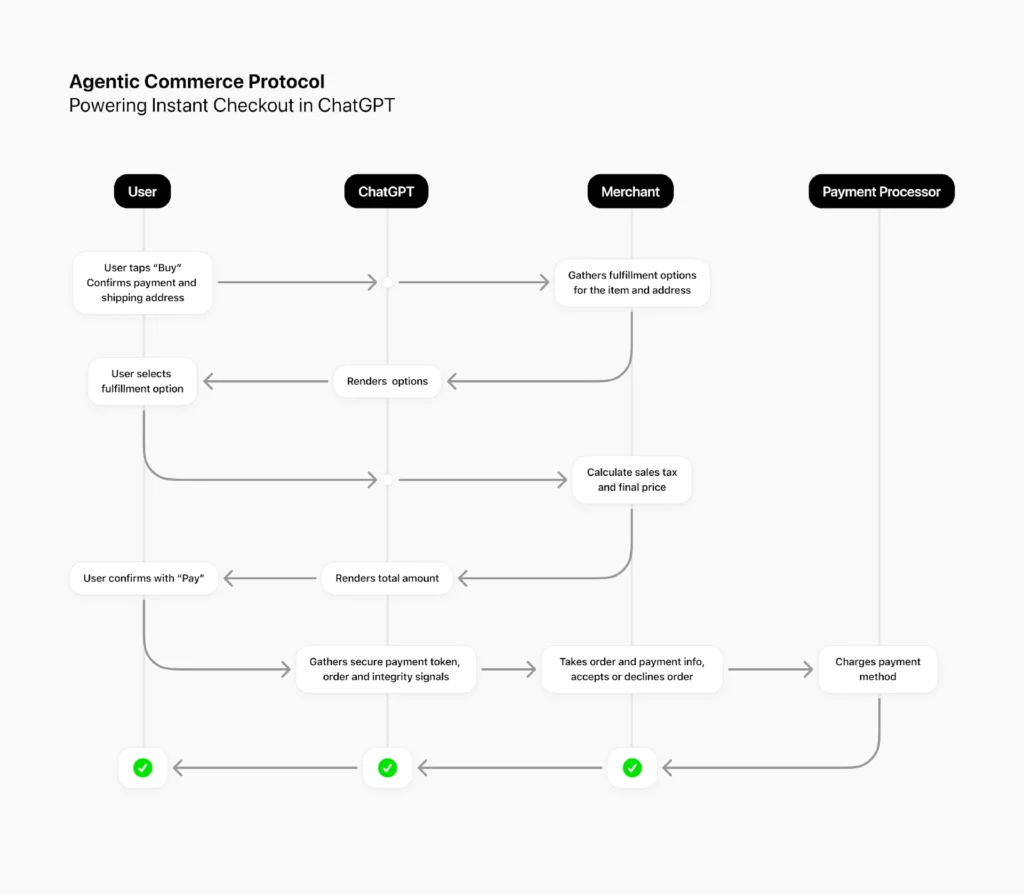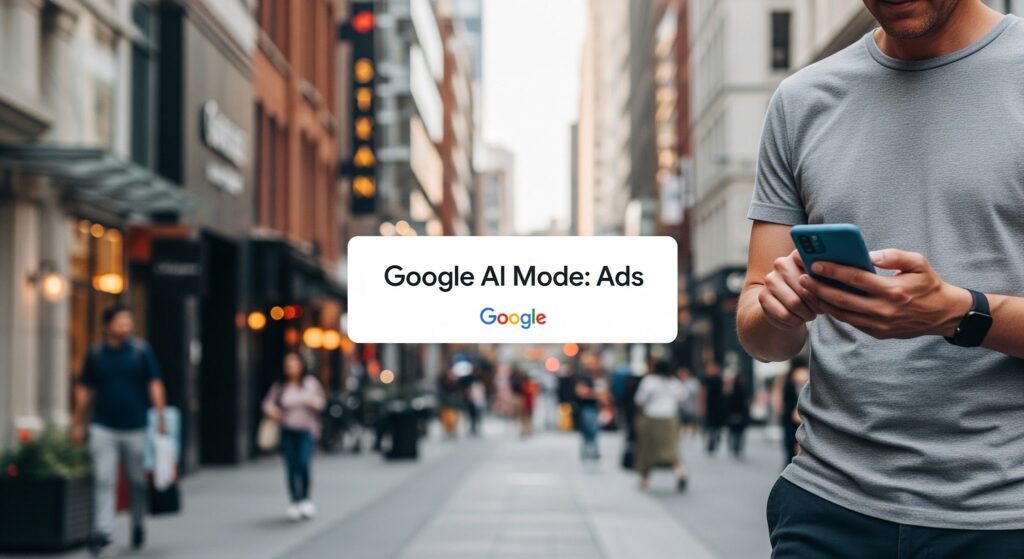ChatGPT’s Instant Checkout: the beginning of the end for ecommerce websites?

Alistair Hague
Alistair Hague is Senior Partner for AI & Automation at Open Partners, with 27 years of international expertise spanning digital marketing, search, and web strategy.
From the outset it was clear: AI and large language models (LLMs) aren’t just reducing the need for clicks by guiding purchase decisions, they’re moving towards eliminating clicks altogether, even for the act of buying itself.
When OpenAI announced Instant Checkout in ChatGPT, my first reaction was, this feels like a glimpse of the future – quickly followed by a bigger question: could this be the beginning of the end for eCommerce websites?
The idea is simple but game changing. Instead of sending someone to your website to complete a purchase, ChatGPT can now recommend a product and let the user buy it, right there in the chat. No extra clicks, no bouncing between tabs, no checkout friction.
If that sounds like a big deal, it’s because it is.
We’re moving into an era where conversational AI isn’t just answering questions – it’s shaping buying decisions and handling transactions. That could have major implications for search, SEO, and the role of ecommerce websites.
How Instant Checkout Works
Here’s the short version: ChatGPT has partnered with Shopify and Etsy, allowing millions of products to be discoverable directly within the chat interface.
When you ask ChatGPT for, say, “the best trainers under £100,” it will return a list of relevant options complete with product images, descriptions, and a “Buy” button. Tap that button, and you can pay through a secure flow without ever leaving the chat.

Why It Matters for Search
Traditionally, search marketing has been about showing up in Google’s SERPs. Optimise your site, rank for keywords, get the click, and hope the user converts once they land on your page. Instant Checkout flips that on its head.
Instead of typing keywords, people can describe what they want in natural language, and the AI goes hunting for the right match. As one analyst put it, “We’re moving from the era of keyword search to the era of agentic commerce. Customers won’t be hunting through search results; they’ll be describing what they want”.
That means discoverability isn’t about “gaming” search algorithms anymore. It’s about data quality. If your product data is rich, complete, and accurate, ChatGPT is far more likely to surface your offering.
SEO in this world looks less like tweaking meta tags and more like feeding the AI everything it needs to confidently recommend your product.
It’s no coincidence that Shopify’s VP of Product framed it this way: “People are discovering products in AI conversations, not just through search or ads. This is a really exciting shift for commerce”.
Disruption and opportunity
For digital marketers, this creates both a new channel and a new headache.
On the opportunity side: Instant Checkout is essentially an AI-powered shop window that reaches millions of users. If your products are optimised for it, you could see high intent customers flowing straight into conversion without the traditional drop offs of landing pages, checkout flows, or abandoned baskets.
On the disruption side: your website traffic could shrink.
Clicks will go down more and more. Now consumers won’t even have to go to a product page to buy. That has knock on effects for attribution, remarketing, and how we think about the customer journey.
There’s also the data question.
Yes, merchants remain the “merchant of record”; they still process payments, handle fulfilment, and own the customer relationship. But let’s be honest: OpenAI will be capturing valuable intent data along the way. What people ask for, what influences their choices, what makes them abandon the chat, this is the new goldmine of consumer insight. Right now, brands aren’t guaranteed full visibility into that.
Is this the end of ecommerce websites?
This is the big question for me. If ChatGPT (and eventually Google, Amazon, Meta, or whoever else joins the game) can surface your products and process transactions without your site, do you even need a website anymore?
Here’s my take: not yet. But the role of the website is going to change.
Ecommerce sites won’t disappear. They’ll evolve from being the primary sales channel to being a data source and brand hub.
Your site will feed structured data into these AI systems, making sure your products can be found. It will also continue to play an important role in storytelling, building trust, and offering richer experiences than a chat interface ever could.
In short: the site will become less about conversion and more about brand identity, loyalty, and data completeness.
That said, the long term direction is clear. We’re moving towards an open ecosystem where LLMs pull from shared product databases, and consumers rely more on AI agents than on Google searches or branded websites to discover and buy. If that’s the case, ecommerce websites could end up playing a supporting role rather than being centre stage.
Here’s a visual shared by OpenAI:

Where do we go from here?
For me, the key takeaway is that we need to prepare for a post website first world. That means:
Investing in data quality: product details, images, reviews, and structured feeds that AI can easily parse.
Building brand equity across platforms: so that when the AI looks for “trusted” sources, you show up
Exploring “Generative Engine Optimisation”: not just SEO for Google, but ensuring you’re visible in AI-driven recommendation engines.
This isn’t about abandoning websites. It’s about recognising that websites are becoming one part of a much bigger puzzle and that puzzle is increasingly powered by AI.
Final Thought
Will Instant Checkout kill the ecommerce website? Probably not tomorrow, but it’s a clear signal that the gravitational pull of search and discovery is shifting again.
Just as social media and marketplaces chipped away at direct site traffic, conversational AI is about to take another slice.
The winners will be the brands that adapt early, those who treat data as marketing, embrace new standards like the Agentic Commerce Protocol, and think beyond the homepage. The losers will be the ones still chasing keyword rankings while the world moves to AI driven discovery.
That raises the challenge (and opportunity) for us as search marketers: are we ready to optimise not for pages, but for conversations?




